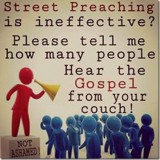Dear _____(insert the name)_____ Church
Greetings in our Saviour the Lord Jesus Christ, who almost 2000 years ago took up His life (see John 10:18) in the Resurrection and ascended to the right hand of God our Abba Father! Brothers and Sisters, please do consider this blogpost very carefully.
Firstly, over this period of time (March/April) the “age-old discussion between Passover or Easter?” always rears its head. This is why I make this earnest plea to you all to consider this posting very carefully and test all things with an open Bible. Secondly, the Roman Catholic church has sullied the word “Easter” with their misrepresentation of “Christendom.”
For those of you who do not know, The Authorised Version (KJV1611) has the word Easter in Acts 12:4 – surprised?? – which is not a pagan word, but refers to the Christian Church’s (ekklesia’s) post-crucifixion “celebration” which has fulfilled the Messiah’s Passover, the Lamb of God that takes away the sin of the world. Easter might sound like “. . . the Anglo-Saxon “Estre” – “Estara” – “Eastre” – “Ishtar” the pagan goddess of Spring and fertility”, however this is far from the Truth. Let us first consult the Strong’s Complete Word Study Concordance with regards to the word “Easter” from Acts 12:4 (Authorised Version):
Gk #3957 πασχα pascha, pas’-khah; of Chaldee origin [compare Heb #6453]; the Passover (the meal, the day, the festival or the special sacrifices connected with it):- Easter, Passover.
The Hebrew word is:
6453 פּסח pesach, peh’-sakh; from 6452; a pretermission, i.e. exemption; used only technically of the Jewish Passover (the festival or the victim):- Passover (offering).
A masculine noun meaning Passover, a Passover animal, a sacrifice. The word is used forty-nine times, usually referring to the Passover festival or celebration. It is first used to describe the Passover ritual while Israel was still in Egypt (Ex 12:11, 27, 45, 48; 34:25). The first Passover ideally was constituted as follows: on the human level, the Israelites killed the Passover sacrifice on the evening of the fourteenth day of the first month, Abib or Nisan (March or April). They then took some of the blood of the slain Passover animal (Dt 16:2, 5) and smeared it on the sides and tops of the doorframes of their houses (cf. Ex 12:7). The Passover ritual and the Passover animal were directed and belonged to the LORD (Ex 12:11, 48; Dt 16:1). Then they roasted the animal (lamb, kid, young ram, goat – a one-year-old without any defect) and ate it with their sandals on their feet and their staffs in their hands ready to move out in haste at any time. The angel of death passed through Egypt and passed over the Israelites’ houses with the blood of the lambs on the doorposts, but the angel struck the firstborn of all the Egyptian households (cf. Ex 12:12, 13, 29). Later Passovers were held in commemoration of the historical event of Israel’s deliverance from Egyptian bondage.
The animals eaten were also called the pesach, the Passover sacrifice (Ex 12:21; 2Ch 30:15; 35:1). The Passover was celebrated throughout Israel’s history before and after the exile (Nu 9:4; Jos 5:10; 2Ki 23:22; Ezr 6:19, 20).
The root word from which we get the Hebrew pesach, is from the Hebrew word:
6452 pâsach, paw-sakh’; a primitive root; to hop, i.e. (figurative) skip over (or spare); by implication to hesitate; also (literal) to limp, to dance:- halt, become lame, leap, pass over.
A verb meaning to leap, to pass over, to halt, to limp, to be lame. The first occurrence of this verb is in Exodus, where God states that He will preserve the Israelites by passing over their homes when He goes through Egypt to kill the firstborn (Ex 12:13, 23, 27). This sentiment is echoed by the prophet Isaiah (Is 31:5). In 2Sa 4:4, the word is used of Saul’s grandson who became lame. Before Elijah confronted the prophets of Baal, he confronted the Israelites for their syncretism. He asked how long they would bounce back and forth between the LORD and Baal (1Ki 18:21). Then during Elijah’s confrontation, the prophets of Baal began to dance on the altar that they had constructed (1Ki 18:26). This was probably some sort of cultic dance performed as part of the sacrifice ritual.
As can be seen nowhere does it make reference to ““Estre” – “Estara” – “Eastre” – “Ishtar” the pagan goddess of Spring and fertility.” The true etymology of Easter can be found at the following blogposts Part 1 and Part 2 dealing with the Correct Rendering of Easter at Acts 12:4. It should also be borne in mind that “one” needs to be very vigilant and discerning as to what “information” is gleaned from the internet – we are told in Scripture to try the spirits (see 1 John 4:1).
On Thursday 2nd April 2015, at my flat I was approached by a cleaning lady named Virgina who said to me that there were a lot of “Afrikaans Bibles in a black bag dumped in the garbage room.” Well, long story short, “one man’s rubbish is another man’s treasure”, I am now in possession of a 1o6 year old Dutch Bijbel. The reason why I make reference to this Dutch Bijbel which “came into my possession just at the right time” is how it translates Acts 12:4 in connection with the other parts of Scripture:
Ø Easter = Paasch-feest – Acts 12:4 – “Welken hij ook, gegrepen hebbende, in de gevangenis zette, en gaf hem over aan vier wachten, elk van vier krijgsknechten, om hem te bewaren, willende na het Paasch-feest hem voorbrengen voor het volk.” [my emphasis and throughout]
Ø Passover = Pascha – 1 Corinthians 5:7 – “Zuivert dan den ouden zuurdeesem uit, opdat gij een nieuw deeg zijn moogt, gelijk gij ongezuurd zijt; want ook ons Pascha is voor ons geslacht, namelijk Christus.”
Ø Passover = Pascha in the other Scriptures.
A Google Translate in Dutch for the word “Easter” comes up as “noun Pasen, Paasfeest; adjective paas-”; and the English/Dutch translation for “Passover” comes up as “noun Pasen, paaslam, Joods Paasfeest.” Kindly also note that even Scripture gives a clear distinction of the “Jews’ Passover” in John 2:13 and 11:55.
To test Acts 12:4 further, I have consulted the Spanish Bible on my e-Sword and the parallel translation reads:
Ø Easter = páscoa – Acts 12:4 – “E, havendo-o prendido, lançou-o na prisão, entregando-o a quatro grupos de quatro soldados cada um para o guardarem, tencionando apresentá-lo ao povo depois da páscoa.”
Ø Passover = páscoa – 1 Corinthians 5:7 – “Expurgai o fermento velho, para que sejais massa nova, assim como sois sem fermento. Porque Cristo, nossa páscoa, já foi sacrificado.”
My Oxford Spanish Mini Dictionary records in English:
“Easter” as “/n Semana f Santa; (Relig) Pascua f de Resurrecciόn;” and
“Passover” as “/ n Pascua / de los hebreos.”
For Easter it is for the Resurrection and for Passover of the Hebrews. In the Spanish side of the dictionary: “Pascua f (fiesta de los hebreos) Passover; (de Resurrecciόn) Easter;”.
Comparing English / Dutch / Spanish they all appear in agreement. Now to test the etymology further, read the articles that appear online here: Part 1 and Part 2.
Kindly also note that our Lord and Saviour Jesus Christ has fulfilled the Feasts of “Passover”, “Unleavened Bread”, “First Fruits” and “Pentecost”. To continually revisit these feasts can lead one to “crucify to themselves the Son of God afresh, and put him to an open shame.” (Hebrews 6:6). We are told in Colossians 2:16 let no man therefore judge you . . . “in respect of an holyday, or of the new moon, or of the sabbath days:” for in Colossians 2:17 we read: “Which are a shadow of things to come; but the body is of Christ.” Those “holyday / new moon / sabbath days” being the “shadow of things to come” have been fulfilled by the finished work of our Lord Jesus Christ who dies no more (see Romans 6:9,10). Whilst we might be warned of the “Roman Catholic Easter”, kindly remember every year when one comes together for “Good Friday” sermons if they are not kept strictly according to the Jewish feast dates then “those days” have their origins from the “Roman Catholic church’s” formula received at the First Council of Nicaea in 325 AD. As the feasts have been fulfilled by our Lord Jesus Christ how can we “celebrate” them continually year after year? How many times must Christ be crucified “Passover/Unleavened Bread” and be raised to life “First Fruits”? The argument could then be made that most protestant churches “celebrated” Easter as a Roman Catholic church! This “Good Friday” (3rd April 2015) was before the true Jewish Passover (Nisan 14) for 2015 which only took place at sunset on Saturday 4th April to sunset Sunday 5th April 2015 [the first day of the week] and therefore the resurrection would be three days and three nights later on Thursday 9th April 2015 [the fourth day of the week]! Just “celebrating ‘Good Friday’” as the day of the crucifixion would be in and of itself Roman Catholic! And this year “we” have failed to keep the Jewish feast! This is why we have a real drastic problem keeping days and feasts as we are warned in Galatians 4:9,10 ~
9 But now, after that ye have known God, or rather are known of God, how turn ye again to the weak and beggarly elements, whereunto ye desire again to be in bondage?
10 Ye observe days, and months, and times, and years.
However, we do have a wonderful way of rest from all of this. Let us first look at the Biblical Historical Account of our Lord Jesus Christ’s crucifixion on a Thursday in order to fulfil Matthew 12:39,40 (three days and three nights), and if we want to be more specific let us use the day-naming as God uses throughout Scripture. Our Lord Jesus Christ was crucified on day five and resurrected on the first day of the week, as follows:
ELEVEN-DAY BIBLICAL CHRONOLOGICAL ACCOUNT (From The Birth, Death, and Resurrection of Jesus Christ by Gary Stephen Crous)
___________________________________
Sunset (9th Nisan) – FRIDAY [sixth day of the week]
Sunrise
1Then Jesus six days before the passover came to Bethany, where Lazarus was which had been dead, whom he raised from the dead. ~ John 12:1
This was when Mary, Martha’s and Lazarus’ sister, anointed Jesus Christ’s feet with a pound of ointment of spikenard (see John 12:3) the day before His triumphal entry into Jerusalem (see John 12:12).
___________________________________
Sunset (10th Nisan) – SATURDAY (Sabbath Day) [seventh day of the week]
Sunrise
The Triumphal Entry of Jesus Christ into Jerusalem (Matthew 21:1,10; Mark 11:1; Luke 19:29,37,38; John 12:12). The Messiah is the paschal lamb of the Jewish Passover as God Almighty had commanded that a lamb without blemish was to be set aside on 10th Nisan (Exodus 12:3) and this lamb would be killed on “the fourteenth day of the same month: . . . in the evening” (Exodus 12:6).
___________________________________
Sunset (11th Nisan) – SUNDAY [first day of the week]
Jesus went to Bethany with His disciples (Mark 11:11).
Sunrise
On the morrow when they came from Bethany, Jesus cursed the fig tree (Mark 11:12-14), He cleansed the Temple and taught (Mark 11:15-18).
___________________________________
Sunset (12th Nisan) – MONDAY [second day of the week]
And when even was come He went out of the city (Mark 11:19).
Sunrise
And in the morning they passed the fig tree and He speaks of the Power of Faith (Mark 11:20-24) and He teaches on forgiveness and addresses the question of authority (Mark 11:25-33). Jesus then teaches extensively (Mark 12:1-44, 13:1-37; Luke 20:1-47, 21:1-38).
1After two days was the feast of the passover, and of unleavened bread: and the chief priests and the scribes sought how they might take him by craft, and put him to death. 2But they said, Not on the feast day, lest there be an uproar of the people. ~ Mark 14:1,2 (Cf. Matthew 26:1,2 and Luke 22:1,2)
___________________________________
Sunset (13th Nisan) – TUESDAY [third day of the week]
Sunrise
Judas Iscariot plans to betray Jesus. This event took place sometime after Jesus’ Triumphal Entry into Jerusalem and before the first day of Unleavened Bread as we read in the Apostle Luke’s account:
1Now the feast of unleavened bread drew nigh, which is called the Passover . . . 7Then came the day of unleavened bread, when the passover must be killed. ~ Luke 22:1,7
___________________________________
Sunset (14th Nisan) – WEDNESDAY [fourth day of the week] – Passover (Leviticus 23:5)
Sunrise
___________________________________
Sunset (15th Nisan) – THURSDAY [fifth day of the week] – First Day of Feast of Unleavened Bread (Leviticus 23:6)
The Passover is prepared and the Passover lamb is killed (Matthew 26:17-19; Mark 14:12-16; Luke 22:7-13).
“Now when the even was come,” in the evening the Passover meal is celebrated and eaten (Matthew 26:20-25; Mark 14:17-21; Luke 22:14-18)
The Lord’s Supper is instituted by the Lord Jesus Christ (Matthew 26:26-29; Mark 14:22-25; Luke 22:19,20)
After the meal, they depart for the Mount of Olives and Peter’s denial is predicted (Matthew 26:30-35; Mark 14:26-31; Luke 22:31-34; John 13:36-38)
Jesus and His disciples go to the Garden of Gethsemane to pray (Matthew 26:36-46; Mark 14:32-42; Luke 22:39-46; John 17:1-26)
Jesus is betrayed and arrested (Matthew 26:47-56; Mark 14:43-52; Luke 22:47-53; John 18:1-11)
Jesus’ Trials –
-
Before the Sanhedrin by Annas and Caiaphas the high priest (Matthew 26:57-68; Mark 14:53-65; Luke 22:54, 55, 63-71; John 18:12-14, 19-24)
Sunrise (First Day – part)
Jesus’ Trials continue “And straightway in the morning …” (Mark 15:1)
-
Pontius Pilate the Roman governor (Matthew 27:1, 2, 11-28; Mark 15:1-14; Luke 23:1-7; John 18:28-40, 19:1-16)
-
Herod Antipas (Luke 23:8-12)
-
Pontius Pilate the Roman governor (Luke 23:13-25)
Jesus is lead away to be crucified at Calvary (Golgotha)–
-
3rd Hour (9am) – Jesus is crucified (Matthew 27:35; Mark 15:24, 25; Luke 23:33; John 19:18)
-
6th Hour (12pm) – 9th Hour (3pm): There were three hours of darkness over all the earth (Matthew 27:45; Mark 15:33; Luke 23:44)
-
9th Hour (3pm) – Jesus died giving up His spirit (Matthew 27:46-50; Mark 15:34-37; Luke 23:46; John 19:30)
Fulfilment of Jesus’ prophecy in Matthew 12:39,40 = Part of One Day, No Night
___________________________________
Sunset (16th Nisan) – FRIDAY [sixth day of the week] – The Preparation Day (First Night – full)
Jesus is taken off the cross and buried in a tomb by Joseph of Arimathae and Nicodemus – when evening was come, the day before the Sabbath (Matthew 27:57-61; Mark 15:42-47; Luke 23:50-55; John 19:38-42).
54And that day was the preparation, and the sabbath drew on. ~ Luke 23:54
As it was the day of preparation and the Sabbath drew on no body could remain up on the cross on the holy preparation day and the Sabbath day. Also, according to Deuteronomy 21:23, it commands that “a body shall not remain all night upon the tree”. When this is mentioned in John 19:31 the high Sabbath day is in reference to a Sabbath day during the Feast of Unleavened Bread.
Sunrise (Second Day – full)
Fulfilment of Jesus’ prophecy in Matthew 12:39,40 = Two Days (1 part + 1 full), One Night (1 full)
___________________________________
Sunset (17th Nisan) – SATURDAY [seventh day of the week] – Sabbath Day (Second Night – full)
In the grave (Luke 23:56).
Sunrise (Third Day – full)
Fulfilment of Jesus’ prophecy in Matthew 12:39,40 = Three Days (1 part + 2 full), Two Nights (2 full)
___________________________________
Sunset (18th Nisan) – SUNDAY – First Day of the Week – The Third Day (Three days dead Thur./Fri. – Fri./Sat. – Sat./Sun. and raised on the Third Day) (Third Night – part)
Jesus raised to life in the Resurrection “In the end of the Sabbath, as it began to dawn toward the first day of the week” (Matthew 28:1-8; Mark 16:1-8; Luke 24:1-12; John 20:1-10)
Fulfilment of Jesus’ prophecy in Matthew 12:39,40 = THREE DAYS (1 part + 2 full), THREE NIGHTS (2 full + 1 part)
Sunrise
___________________________________
As Judeo-Christians we have a problem celebrating the Passover as given to the Jews. In 2015 the “resurrection” would have been on the fifth day of the week (9th April 2015 – TODAY!) when the Holy Bible says Jesus Christ was resurrected “In the end of the Sabbath, as it began to dawn toward the first day of the week”, the day the apostle Luke refers to as Easter. Therefore (in light of all that has been said before), in order to get away from all the day/feast squabbling, our Lord Jesus Christ gave us a better Feast and we can partake of it everyday! This is why we are commanded to remember our Lord’s death through partaking of the Lord’s supper, as we read:
1Cor 11:23 For I have received of the Lord that which also I delivered unto you, That the Lord Jesus the same night in which he was betrayed took bread:
1Cor 11:24 And when he had given thanks, he brake it, and said, Take, eat: this is my body, which is broken for you: this do in remembrance of me.
1Cor 11:25 After the same manner also he took the cup, when he had supped, saying, This cup is the new testament in my blood: this do ye, as oft as ye drink it, in remembrance of me.
1Cor 11:26 For as often as ye eat this bread, and drink this cup, ye do shew the Lord’s death till he come.
I hope you all will prayerfully test all things and remember to read the aforementioned articles here: Part 1 and Part 2. That is why we must Study the Word – God commands us to do so (see 2 Timothy 2:15)!
Soli Deo Gloria!
Filed under: Easter, Passover | Tagged: Christian, Church, Heresy, Holy Scriptures, Israel, Protestant, Roman Catholicism |



















 Joshua Project
Joshua Project The Biblical Basis of Missions
The Biblical Basis of Missions

![The Biblical Nativity (Birth) of our Lord Jesus Christ according to the Holy Scriptures in the Gospel of Luke 1 & 2 [see Purge the leaven … blog post] The Nativity of our Lord Jesus Christ ~ Luke 1 & 2 The Biblical Nativity (Birth) of our Lord Jesus Christ according to the Holy Scriptures in the Gospel of Luke 1 & 2 [see Purge the leaven … blog post]](https://luke923evangelism.files.wordpress.com/2012/12/birth-of-christ-e1374168223523.png)




[…] April 9, 2015 – Passover or Easter Controversy | Luke 9:23 Evangelism (wordpress.com) […]
LikeLike